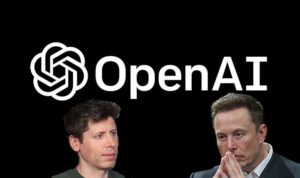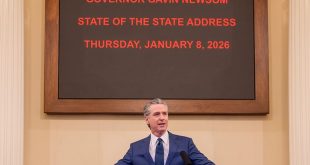 By: Gabriel Barajas, Staff Writer
By: Gabriel Barajas, Staff Writer
Elon Musk has led a bold $97.4 billion offer to take over OpenAI, the artificial intelligence company he helped establish in 2015. This ambitious bid, backed by his AI firm xAI along with investors such as Vy Capital and Hollywood power player Ari Emanuel, seeks to reclaim OpenAI’s direction and push it back toward open-source innovation. However, OpenAI’s leadership, led by CEO Sam Altman, has firmly rejected the offer, escalating an already heated rivalry between the two tech giants.
Speaking at an AI summit in Paris, Altman dismissed Musk’s proposal outright, declaring, “We are not for sale.” His response underscores OpenAI’s ongoing transition from a nonprofit model to a for-profit enterprise, a shift that Musk has strongly opposed. He contends that OpenAI has strayed from its original mission of creating AI for public benefit, aligning instead with corporate interests—particularly through its deepening ties with Microsoft.
Musk and Altman’s dispute is more than just a personal feud—it’s a battle over the future of artificial intelligence. Musk, who parted ways with OpenAI in 2018 following an internal power struggle, has since become one of its most outspoken critics. He has even taken legal action against the company, accusing it of abandoning its nonprofit roots in favor of profit-driven motives.
Meanwhile, Altman is working to secure a $40 billion funding round led by SoftBank, a move that values OpenAI at approximately $300 billion. If successful, this funding would position OpenAI among the most valuable private companies in the world, alongside Musk’s SpaceX and TikTok’s parent company, ByteDance. However, Musk’s unexpected bid has thrown a wrench into OpenAI’s plans, possibly prompting regulatory scrutiny of its governance.
Musk’s legal team insists that if OpenAI is committed to becoming a fully for-profit company, it must fairly compensate its nonprofit arm for the control it is relinquishing. The nonprofit board, which technically retains oversight of OpenAI’s mission, must assess Musk’s offer and determine whether it aligns with its fiduciary responsibilities. Legal analysts suggest that rejecting Musk’s bid in favor of a lower valuation from OpenAI’s for-profit division could raise concerns with state charity regulators.
 OpenAI’s complex structure makes any potential acquisition particularly challenging. Despite its nonprofit entity having a relatively small team and limited assets, the organization itself wields significant control over OpenAI’s for-profit operations, its nonprofit entity wields significant influence over OpenAI’s for-profit operations. Musk and his allies argue that any transition to a fully commercial model must uphold OpenAI’s founding mission of benefiting humanity.
OpenAI’s complex structure makes any potential acquisition particularly challenging. Despite its nonprofit entity having a relatively small team and limited assets, the organization itself wields significant control over OpenAI’s for-profit operations, its nonprofit entity wields significant influence over OpenAI’s for-profit operations. Musk and his allies argue that any transition to a fully commercial model must uphold OpenAI’s founding mission of benefiting humanity.
Adding another layer to the conflict, Musk has positioned himself as a direct competitor through his AI company, xAI, which seeks to challenge OpenAI’s dominance with its own large language model, Grok. While xAI is still in its early stages, Musk’s growing influence in the AI space—bolstered by his advisory role to President Donald Trump on AI policy—continues to shift industry dynamics. Meanwhile, Altman has been strategically maneuvering in Washington, securing support for OpenAI’s ambitious $100 billion AI infrastructure project with backing from SoftBank and Oracle.
Although OpenAI has publicly rejected Musk’s bid, the situation remains fluid. If Musk and his backers persist, this could lead to further legal disputes or force OpenAI to rethink its governance structure. Whether this move is a calculated disruption or a genuine attempt to steer OpenAI back to its original mission, it has reignited a crucial debate over who should control AI’s future and how it should be developed.
For now, the struggle over OpenAI’s fate remains unresolved, with both Musk and Altman doubling down on their competing visions for the next era of artificial intelligence.


